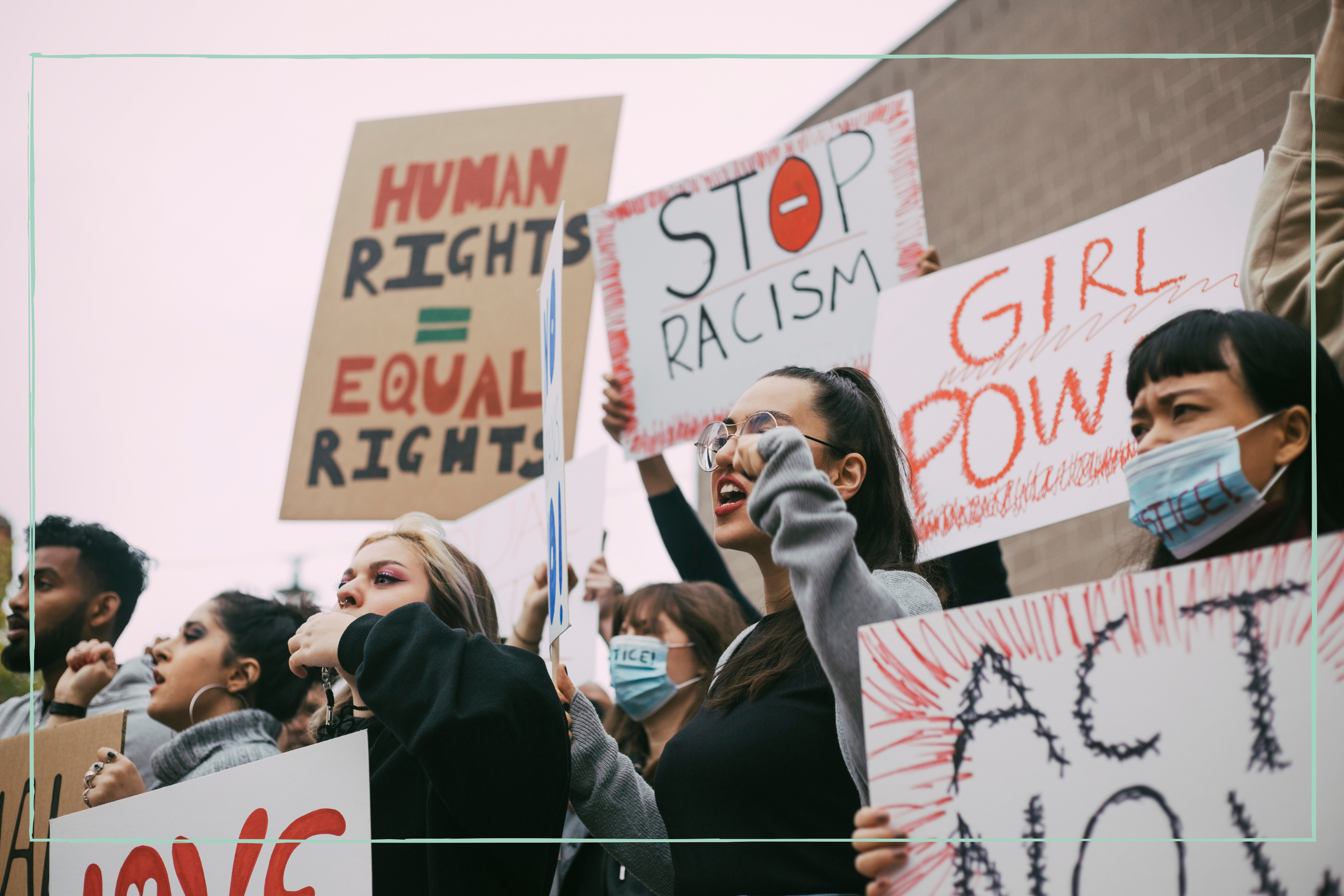What does Woke mean? Origins and definitions explored
The term woke has entered the world of politics in recent years, but many are still wondering what does woke mean?


'Woke' is being used across social media and current affairs, and not for its traditional meaning of waking from sleep. So, what does woke mean?
As language changes and society evolves, new ideas and concepts come to the forefront, bringing new words with them. Sometimes it can feel hard to keep up with these phrases entering the mainstream, from what does asexual mean and what does demisexual mean to what is gaslighting?
Woke is no different and - to make it even more confusing - it's a word that already has an existing meaning that's differs to its slang definition. With the term becoming more and more widespread in modern debates, we've explained what does woke mean, where it comes from and everything else you need to know about the word.
What does Woke mean?
The word woke is used to describe a person who is well-informed and aware of social issues, usually relating to issues of discrimination and injustice. The Merriam-Webster dictionary defines the term as "aware of and actively attentive to important facts and issues (especially issues of racial and social justice)."
In 2017, the Oxford English Dictionary added the term, saying "In the past decade, the meaning [of woke] has been catapulted into mainstream use with a particular nuance of 'alert to racial or social discrimination and injustice', popularised through the lyrics of the 2008 song Master Teacher by Erykah Badu, in which the words 'I stay woke' serve as a refrain, and more recently through its association with the Black Lives Matter movement, especially on social media."
"Woke" added to the english dictionary. https://t.co/uK2iNRku8U pic.twitter.com/haqqwxYPiNJune 27, 2017
Where does the word 'Woke' come from?
The word woke was first used in the 1800s, but back then it was only in relation to the act of not being asleep. The politically aware meaning of 'woke' was first used in 1962 in a New York Times article about black slang.
The article was written by African-American novelist William Melvin Kelley and was titled 'If You're Woke, You Dig It'. The article was accompanied by a glossary called 'phrases and words you might hear today in Harlem' - a neighbourhood in the north of New York City where many African-Americans live.
Parenting advice, hot topics, best buys and family finance tips delivered straight to your inbox.
Ten years later, a character in the Barry Beckham play Garvey Lives! says he’ll ‘stay woke’. The line reads "I been sleeping all my life. And now that Mr. Garvey done woke me up, I’m gon' stay woke. And I’m gon' help him wake up other black folk."
'Woke' is heavily used in reference to the fight against racism and has been widely used as slang in African-American communities.
In 2008, Erykah Badu's song Master Teacher used the phrase 'I stay woke', and in 2012 Badu tweeted "Truth requires no belief. Stay woke. Watch closely," in support of a Russian feminist group.
The word 'Woke' and Black Lives Matter
Use of the word 'woke' first entered the mainstream in 2012, with the Black Lives Matter movement and the hashtag #staywoke.
In 2012, unarmed African-America teenager Trayvon Martin was shot dead in Florida by neighbourhood watch volunteer George Zimmerman. The incident sparked the Black Lives Matter movement after Zimmerman was acquitted of second-degree murder in 2013.
In 2014, the hashtag #staywoke took off again after another unarmed black teenager, Michael Brown, was shot dead by a white police officer in Ferguson, Missouri. Though the former officer, Darren Wilson, fired a total of 12 bullets, no charges were brought against him.
Don’t get it twisted, this concept of getting rid of “WOKE ideology” really means getting rid of your “civil rights”. Don’t be fooled! #StayWOKEAugust 22, 2022
Is woke an insult?
The term 'woke' has become weaponised - often by right-wing groups - and used to mock those who campaign for social justice, in a similar way to the term 'politically correct' is sometimes used.
In January 2021, Piers Morgan labelled the people calling for the movie Grease to be banned for sexism 'woke idiots' in a tweet. Similarly, Jeremy Clarkson criticised Lewis Hamilton for being 'woke' in an article for the Sun where he talked about the F1 driver's stance as an environmentalist.
The term 'woke police' has also sprung up recently, and is used to negatively describe those who see themselves as woke, while 'woke washing' describes companies with ethically or morally dubious practices capitalising on social movements.
Video of the Week

Ellie is GoodtoKnow’s Family News Editor and covers all the latest trends in the parenting world - from relationship advice and baby names to wellbeing and self-care ideas for busy mums. Ellie is also an NCTJ-qualified journalist and has a distinction in MA Magazine Journalism from Nottingham Trent University and a first-class degree in Journalism from Cardiff University. Previously, Ellie has worked with BBC Good Food, The Big Issue, and the Nottingham Post, as well as freelancing as an arts and entertainment writer alongside her studies. When she’s not got her nose in a book, you’ll probably find Ellie jogging around her local park, indulging in an insta-worthy restaurant, or watching Netflix’s newest true crime documentary.